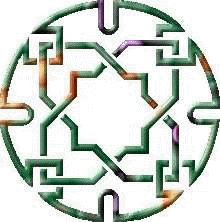Oliver Leaman
Oliver Leaman’s philosophy is best understood as a bridge-building project. He brings together Islamic, Jewish, and Eastern traditions, not to flatten their differences, but to show how they enrich one another and contribute to a more inclusive understanding of philosophy. His work challenges the boundaries of the Western canon, insisting that philosophy is a shared human endeavor shaped by diverse voices across time and culture.
Introduction
Oliver Leaman (b. 1950) is an American philosopher and the Zantker Professor of Judaic Studies at the University of Kentucky. His work spans Islamic, Jewish, and Eastern philosophy, with a distinctive focus on how traditions interact, overlap, and reinterpret one another in both historical and modern contexts.
Leaman is not only a prolific author but also an editor of encyclopedias and handbooks that have shaped the study of non-Western philosophy in the English-speaking world. His intellectual project is deeply pluralistic: he resists the idea of philosophy as a purely Western enterprise and instead emphasizes its global, dialogical character.
Core Themes in Leaman’s Philosophy
1. Islamic Philosophy
- Leaman has written extensively on Islamic philosophy, from medieval figures like Averroes (Ibn Rushd) and Maimonides to contemporary debates.
- In works such as An Introduction to Medieval Islamic Philosophy (1985) and Islamic Aesthetics: An Introduction (2004), he highlights how Islamic thought is not a derivative of Greek philosophy but a creative, evolving tradition in its own right.
- He often stresses the practical and ethical dimensions of Islamic philosophy, especially in relation to the Qur’an and morality (The Qur’an: A Philosophical Guide, 2016; Islam and Morality, 2019).
2. Jewish Philosophy
- Leaman has co-edited major works like the History of Jewish Philosophy (1996) and the Cambridge Companion to Medieval Jewish Philosophy (2003).
- His studies of Maimonides and Jewish responses to suffering (Evil and Suffering in Jewish Philosophy, 1995) show his interest in how Jewish thinkers grapple with universal human dilemmas through a religious-philosophical lens.
3. Eastern and Comparative Philosophy
- In Key Concepts in Eastern Philosophy (1999) and Eastern Philosophy: Key Readings (2000), Leaman broadens the philosophical canon by including Indian, Chinese, and other Asian traditions.
- His comparative approach emphasizes cross-cultural dialogue, showing how ideas of friendship, aesthetics, and ethics resonate across civilizations.
4. Philosophy of Religion
- Leaman views religion as a plurality of arguments rather than a monolithic doctrine.
- He argues that to understand a religion, one must engage with its internal debates, contradictions, and philosophical reasoning. This makes his work especially valuable for interfaith and intercultural studies.
Method and Style
- Accessible yet rigorous: Leaman writes in a way that makes complex traditions approachable without oversimplifying.
- Editorial leadership: He has edited encyclopedias such as the Encyclopedia of Asian Philosophy (2001) and The Qur’an: An Encyclopedia (2006), which serve as reference points for scholars worldwide.
- Pluralism: His work consistently resists Eurocentrism, advocating for a global philosophy that recognizes the intellectual contributions of Islamic, Jewish, and Asian thinkers.
Selected Works
- An Introduction to Medieval Islamic Philosophy (1985)
- Evil and Suffering in Jewish Philosophy (1995)
- Averroes and His Philosophy (1997)
- Key Concepts in Eastern Philosophy (1999)
- Islamic Aesthetics: An Introduction (2004)
- The Qur’an: A Philosophical Guide (2016)
- Islam and Morality: A Philosophical Introduction (2019)
- Routledge Handbook of Islamic Ritual and Practice (2022
Readings
History of Islamic Philosophy
Back to Orientalist and Interculturalist thinkers List




